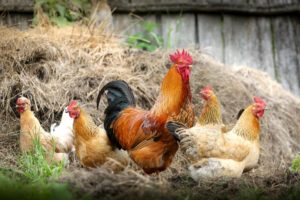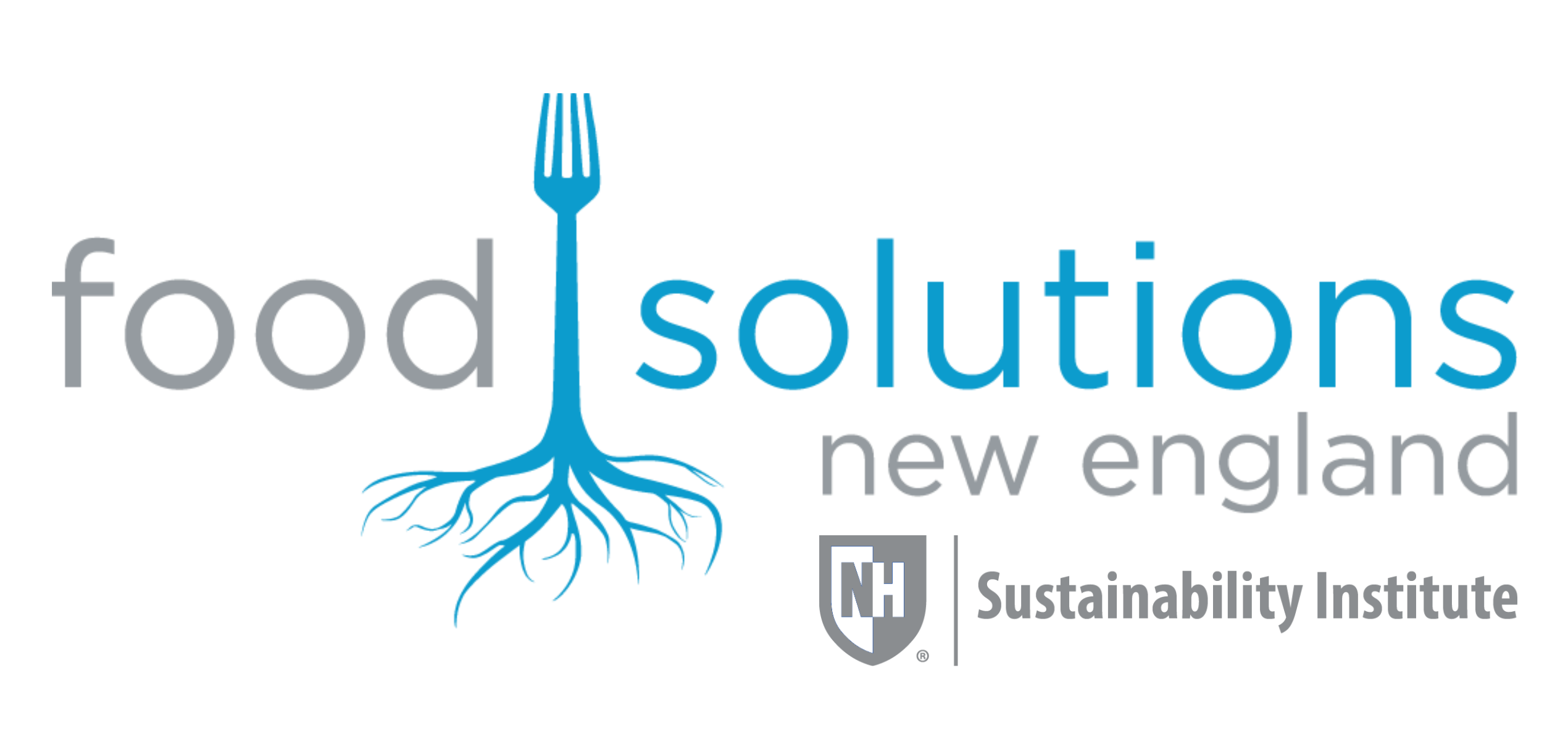Fair Play Required for Local and Regional Food Systems Transformation
Contributed by Karen Nordstrom, FSNE Policy Network Manager
Key Issue:
 Over the last month, much has happened on the policy front, regarding regulating the food industry–which brings me to share Marion Nestle’s Food Politics blog from April 22. This post focused on her article for the American Journal of Public Health, “Regulating the Food Industry: An Aspirational Agenda.” While her list of policy recommendations focuses largely on shifting the food system toward healthier diets, she reminds us not to lose sight of policies that address root causes – such as those that “link agriculture to public health, keep corporate money out of politics, reduce corporate concentration, and require Wall Street evaluate corporations on the basis of social as well as fiscal responsibility.”
Over the last month, much has happened on the policy front, regarding regulating the food industry–which brings me to share Marion Nestle’s Food Politics blog from April 22. This post focused on her article for the American Journal of Public Health, “Regulating the Food Industry: An Aspirational Agenda.” While her list of policy recommendations focuses largely on shifting the food system toward healthier diets, she reminds us not to lose sight of policies that address root causes – such as those that “link agriculture to public health, keep corporate money out of politics, reduce corporate concentration, and require Wall Street evaluate corporations on the basis of social as well as fiscal responsibility.”
Nestle’s work brings me to the focal issue of this policy update, regulation of the meatpacking industry, and relationships between federal regulation and regional impacts. Here is a piece on the Biden Administration’s proposed rule to increase transparency and enhance competition in the highly consolidated meatpacking industry. It also behooves us to look at the National Farmers Union’s Fairness for Farmers Campaign, which “brings the devastating impact monopolies have had on family agriculture into the national spotlight.” Since September 2021, the campaign has called for “actions including reforming the Packers and Stockyards Act (PSA), improving price discovery, diversifying marketing opportunities and antitrust enforcement.” Two bipartisan bills, S.4030 the Cattle Price Discovery and Transparency Act of 2022 and S.3870 the Meat and Poultry Special Investigator Act of 2022, are framed by food supply chain resiliency and are aimed to improve competition and transparency in the livestock industry. The House Agriculture Committee approved the Meat and Poultry Special Investigator Act, which would increase enforcement of competition laws and boost USDA resources to investigate abusive market practices. This NFU press release from May 18 celebrates its approval. Politico leaned further into this “antitrust angle…raising red flags about market consolidation,” based on the current shortage of U.S. infant formula. In this segment, Politico shared the collective response by three Democratic senators (Duckworth- Ill., Booker- N.J., and Klobuchar- MN.) who addressed this issue. Duckworth requested a formal FTC study of the sector and joined Booker and Klobuchar imploring USDA to increase competition in the market. Their shared inquiry led to “questions about the role WIC contracting may have played” in the infant formula sector’s consolidation.
If we scan out to the 30,000-foot view, we find a related dialogue occurring through IPES Food, with a focus on the “Politics of Protein,” Led by Phil Howard, the report examines eight “claims shaping the debate on livestock, fish, and ‘protein’” and makes three recommendations: 1) Shift focus from a ‘protein transition’ to a sustainable food systems transition accompanied by sustainable food policies, 2) Prioritize reform pathways that deliver on all aspects of sustainability, starting at the territorial level, and 3) Reclaim public resources from ‘big protein’, realign innovation pathways with the public good, and reset the debate.
While work is being done at the federal level, and high-level protein analyses are now available via IPES-Food, animal processing in New England continues to be a challenge–with just four slaughterhouses in the region. This story tells the tale of two visionaries who aim to open an additional processing location in Kennebunk this spring.
Additional action at the federal level:
- Strengthening the Agriculture and Food Supply Chain Act introduced by Angie Craig (D-MN) and Dusty Johnson (R-SD) to create a USDA task force to evaluate stability and reliability of the agriculture and food system and identify recommendations to improve security, safety, and resilience of the supply chain.
- The Support Kids Not Red-Tape Act is critical to sustaining school nutrition programs, ensuring children have access to school meals, and preventing substantial financial losses for schools nationwide.
- Extends USDA’s waiver authority through Sept 30, 2023
- Directs states to submit a transition plan to USDA so that schools will be prepared and supported when transitioning back to normal NSLP operations after the waivers end,
- Directs the Secretary of Agriculture to provide technical assistance to states on drafting transition plans and to school food authorities on meeting meal standards during the waiver period, and
- Prevents schools from being penalized for not meeting the meal pattern requirements during the waiver period if the violations are due to supply chain disruptions.
- The White House launched the Affordable Connectivity Program which will bring affordable high-speed internet connectivity to rural areas.
- The White House announces that the Biden Administration will host the first food insecurity conference in 50 years. Conference information may be found here.
- Earlier today (June 1), U.S. Secretary of Agriculture Thomas Vilsack announced USDA’s investment for food systems transformation. To ensure resiliency, competitiveness, and equity in the U.S. food system, he framed these investments in terms of better food and health, and better markets for farmers, ranchers, and consumers. These investments will go toward organic and climate-smart agricultural commodities production; physical infrastructure and worker training; colleges, land-grants, and minority-serving institutions of higher learning; and food access and equity. According to Vilsack, a healthy food financing initiative will reduce and eliminate food deserts, and bring high-quality nutritional food into schools and communities through a healthy food incentive fund and food prescriptions. There will also be greater access to funding for community-building outreach organizations.
Lots of related work has been happening in the fisheries and aquaculture realm as well. The Don’t Cage Our Ocean Coalition has been highly engaged in network activity to press the Biden Administration to revoke a federal order that would “fast-track” industrial aquaculture. You can read more about this effort here.
The National Marine Fisheries Service (NOAA) has been:
- addressing aquaculture in a changing environment, i.e. key issues related to climate change in the sector.
- spreading the word about the AQUAA Act
- the massive ecological and socio-economic implications this legislation would bring
- pointing to the insufficient debate and lack of vocal opposition in Congress, as multinational corporations and well-funded environmental groups spend millions to support this bill
- inviting public comment on a new draft Equity and Environmental Justice Strategy.
- comments will be accepted online until 8/19
- four webinars on the framework will be held where comments will be accepted.
- NOAA and the Bureau of Ocean Energy and Management are working to develop goals for offshore wind energy, while simultaneously protecting biodiversity and promoting ocean co-use.
State-level policy
Connecticut
A big climate bill passed in the legislature to implement climate-smart agricultural practices. For details, see this piece by AFT’s New England Policy Manager, Chelsea Gazillo.
Maine
The momentum against industrial aquaculture is building in Maine and led to the Maine Dept of Marine Resources’ termination of American Aquafarms’ permit application for an industrial fish farm in Frenchman Bay. For more information, see Friends of Frenchman Bay.
See the June 1, 2022 edition of the National Law Review to learn about the passage of LD 1911 An Act to Prohibit the Contamination of Clean Soils with So-called Forever Chemicals. The act bans the application of contaminated sludge and compost derived from sludge, and the sale of compost derived from sludge. The Legislature’s Appropriations and Financial Affairs Committee recently voted to include $60 million in the supplemental budget for a farmer support fund (included in LD 2013) to support farmers who shoulder the PFAS crisis.
Massachusetts
During the month of May, the Massachusetts Food System Collaborative released news about legislative action on four of its five policy priorities. These four priorities include increased funding for MDAR and UMass Extension staff, for local food policy councils, and additional language in the HIP budget line that will allow the program to operate year-round.
New Hampshire
The New Hampshire Food Alliance Statewide Gathering, held May 13 at the Barn on the Pemi, offered a New Hampshire Farm & Food Policy Roundup, a state-level policy strategy session with Elise Bolster (NH Food Bank), Tiffany Dodier (NH Hunger Solutions), and Nikki Kobb (NOFA-NH). They framed their session in terms of policy for systems change, and described how their collective work for food security in the state operates in the context of two-year legislative cycles. From the low hanging fruit of filing an annual SNAP outreach plan (SB 404) and re-establishing SNAP for Women, Infants, and Children Farmers Market Nutrition Program (SB 403) to the challenges faced in advocating for a Local Food for Local Schools Reimbursement Bill (which didn’t pass, but will be brought back with bipartisan support to build on the work already done), these policy advocates came together to reinforce the importance of maintaining contact with and informing legislators through bill action. For more information on addressing food security via NH policy, see this Fresh Air segment on NH Public Radio.
Rhode Island
As mentioned in our last policy update, the Rhode Island Food Council provides bill tracking. For the latest on ten food systems bills being reviewed, click here. Of particular interest to food access advocates is HJR8283, a bill that would address access to infant formula and baby food through SNAP and other means.
Vermont
For a comprehensive policy update on legislative action related to agriculture and forestry in VT, see Rural Vemont’s 2022 End of Session Legislative Recap.
The Working Lands Enterprise Board awarded $3.1 million in New Supply Chain and Market Level Impact-specific grants that will help businesses leverage supply chain partnerships at a significant scale, with awards of up to $250K.
Municipal
The May 2022 issue of Frontiers in Sustainable Food Systems offers a review article, Food Policy Councils: A 20–Year Scoping Review (1999-2019). The article discusses the proliferation of food policy councils through a scholarly literature review. The review revealed four themes addressing the activities (eg. drafting resolutions, reports, and proposals), organizational dimensions (i.e. structure and governance), challenges (i.e. political, structural, and resource issues), and facilitators (eg. membership structures and strategic planning) of FPCs , as well as a significant subtheme related to race and class representation in FPCs. Strategic evaluation and research on the impacts of FPC activities are suggested to strengthen food democracy.
We offer this and subsequent policy updates in order to share information resources, strategies and tactics, and to inspire one another to remain committed to visionary policy within the region. If you have questions or comments, or would like to connect further around any of these topics, please feel free to reach out directly to FSNE Policy Network Manager, Karen Nordstrom via this page.




